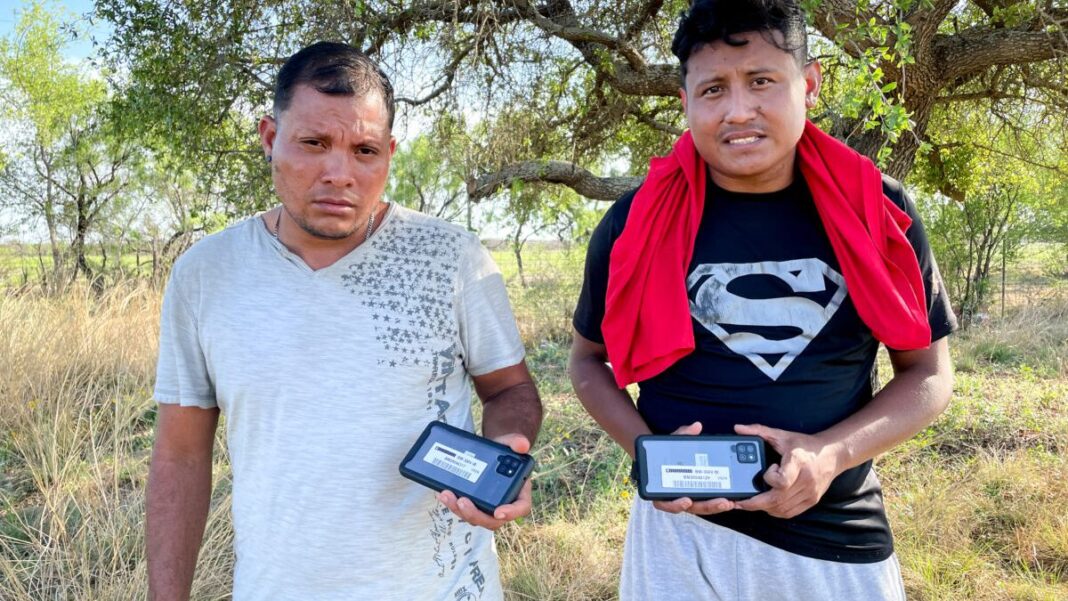U.S. Department of Homeland Security agencies issued more than 255,000 smartphones to illegal aliens during fiscal year 2022, according to data on the Immigration and Customs Enforcement (ICE) website.
The phones are trackable and the individual is responsible for checking in with ICE on a regular basis, often by sending in a geo-tagged photo of themselves.
The cost for the 255,602 phones and their accompanying technology is $245,377 per day. Over a year, that’s $89.5 million.
The majority of the phones were issued to single adults.
ICE has failed to provide any data on the compliance rate of the smartphone program or on how many aliens have absconded from it, despite repeated requests by The Epoch Times.
ICE began issuing the smartphones within the past year as border stations became overwhelmed. Agents started processing illegal aliens under a newly created category called “Parole+ATD.” ATD is an “alternatives to detention” program, which acts as a workaround for the legal requirement to detain illegal aliens.
By law, parole is designed to be used on a “case-by-case basis” and for “urgent humanitarian reasons or significant public benefit,” according to the Immigration and Nationality Act.
The status allows foreign nationals “who may not otherwise be admissible to the country under the immigration laws” to live and work in the United States temporarily “without being formally admitted to the country and without having a set pathway to a permanent immigration status,” according to a 2020 Congressional Research Service report.
Under parole status, illegal immigrants don’t have to provide Border Patrol with evidence of credible fear for asylum and are permitted entry without any preconditions, except for a quick background check in the U.S. crime database.
A Customs and Border Protection spokesman previously told The Epoch Times that the parole designation allows for overwhelmed Border Patrol stations to process and release large numbers of illegal aliens “significantly faster” than the more involved traditional system, which releases an illegal alien with a notice to appear that includes a court date for their first immigration hearing.








